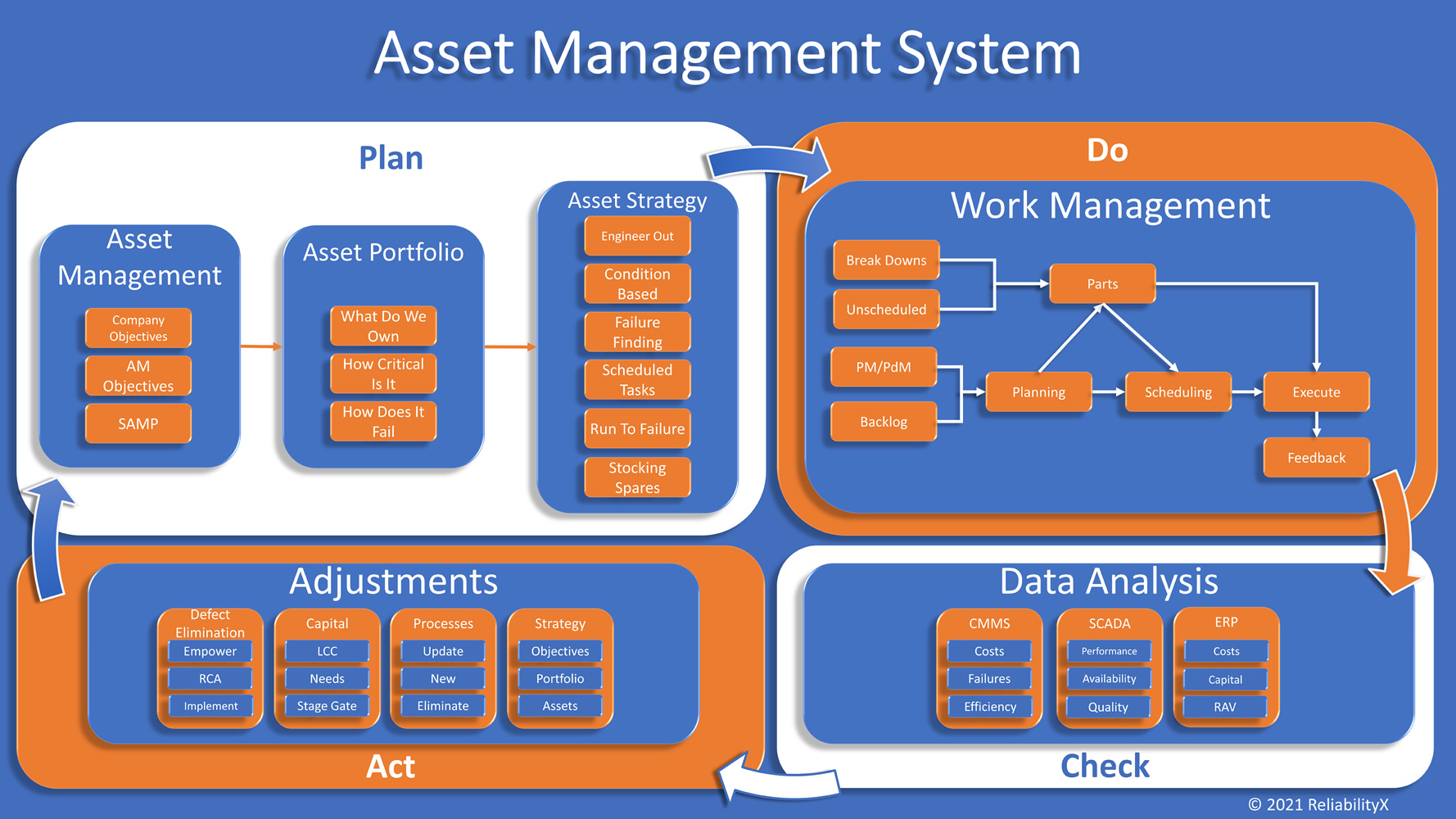Asset Management Systems for Small Groups
An asset management system is comprised of all of the necessary processes, procedures, tools, systems, and methods necessary to meet business objectives in a manner which is controlled, measured, and improved upon. The system, more often than not, takes on some visual representation as in the graphic below. The purpose is to provide a simplified understanding of the overall process to meet asset management goals.
The utilization of such a system generally allows an organization to develop standardized methods, train on those methods, and measure against the use and success of the methods. These steps are typically seen as unnecessary or overkill to smaller organizations. Afterall, if you are the maintenance manager in control of 6 multi-craft technicians, why would you put in all the effort to utilize an asset management standard? What benefit would such a small group see?
Regardless of the size of the maintenance team, and asset management system can offer similar benefits. In smaller teams, the asset management system may be less complex in the level of detail necessary to maintain control of the system but is it just as important to have control. The asset management system’s level of detail should provide an organization with the ability to identify the right work against the right assets at the right time to ensure continued operation and achievement of company goals. “Right” indicates understanding of what is important, what needs to be done, and how it will be completed.
If you are the maintenance manager with a small team developing and implementing an asset management system may seem like a monumental task. Afterall, you have a day job. How can you develop the system, procedures, and tools necessary to implement? I recommend starting with understanding. There are many resources online and in books to help you understand the asset management system and component processes. Do some research and find approaches to these elements which provide the right level of detail for your organizational size. Remember, the goal is to create standards for the various components, not to make them overly complex. You can improve them over time as necessary and as you mature as a group.
Good luck!!
